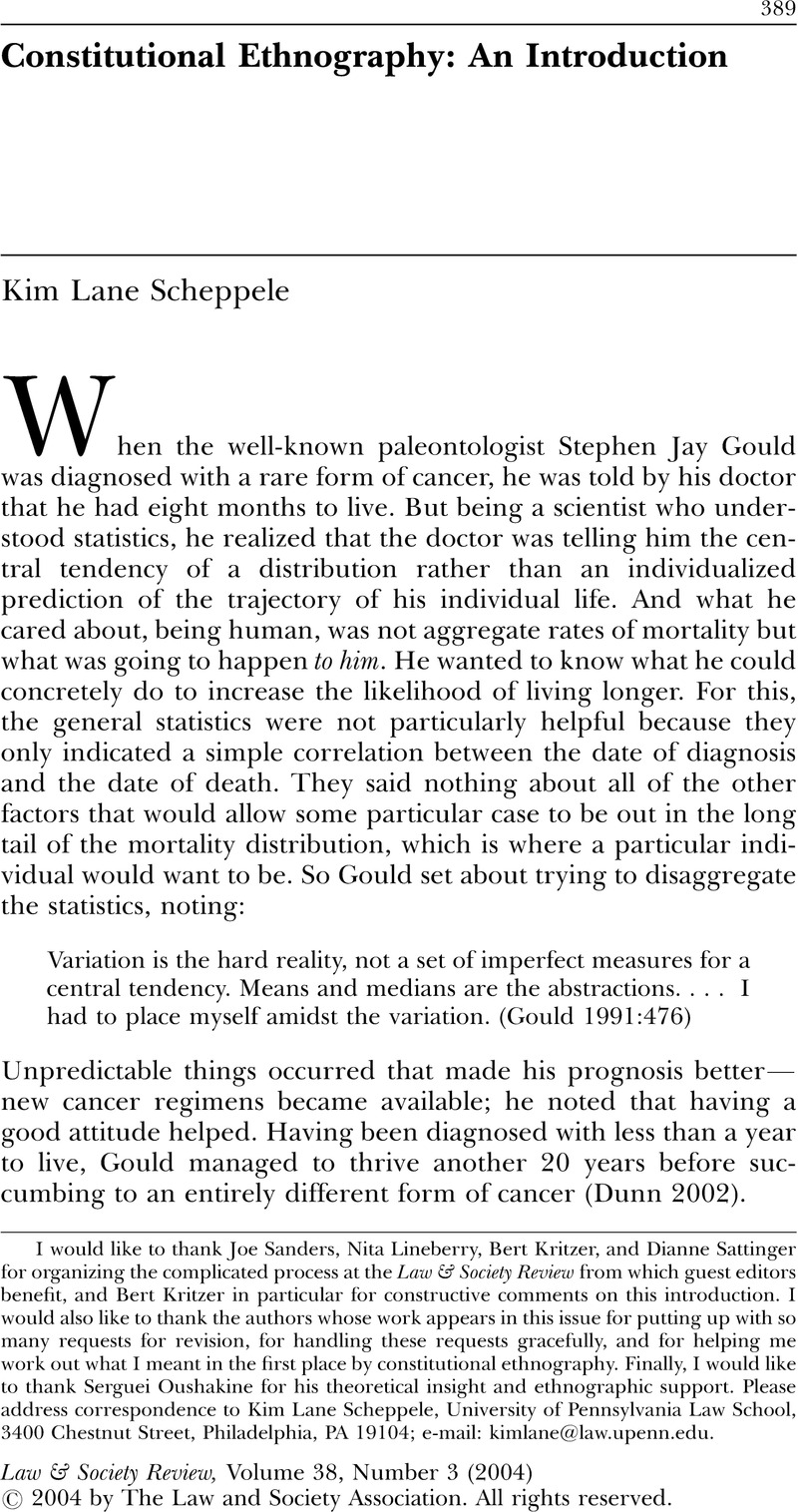Crossref Citations
This article has been cited by the following publications. This list is generated based on data provided by
Crossref.
Klug, Heinz
2005.
TRANSNATIONAL HUMAN RIGHTS: Exploring the Persistence and Globalization of Human Rights.
Annual Review of Law and Social Science,
Vol. 1,
Issue. 1,
p.
85.
Greenhouse, Carol J.
2006.
Fieldwork on Law.
Annual Review of Law and Social Science,
Vol. 2,
Issue. 1,
p.
187.
Belge, Ceren
2006.
Friends of the Court: The Republican Alliance and Selective Activism of the Constitutional Court of Turkey.
Law & Society Review,
Vol. 40,
Issue. 3,
p.
653.
Crowe, Justin
2007.
The Forging of Judicial Autonomy: Political Entrepreneurship and the Reforms of William Howard Taft.
The Journal of Politics,
Vol. 69,
Issue. 1,
p.
73.
Brandwein, Pamela
2007.
A Judicial Abandonment of Blacks? Rethinking the “State Action” Cases of the Waite Court.
Law & Society Review,
Vol. 41,
Issue. 2,
p.
343.
Somers, Margaret R.
and
Roberts, Christopher N.J.
2008.
Toward a New Sociology of Rights: A Genealogy of “Buried Bodies” of Citizenship and Human Rights.
Annual Review of Law and Social Science,
Vol. 4,
Issue. 1,
p.
385.
Woods, Patricia J.
and
Hilbink, Lisa
2009.
Comparative Sources of Judicial Empowerment.
Political Research Quarterly,
Vol. 62,
Issue. 4,
p.
745.
Thornhill, Chris
2010.
Niklas Luhmann and the sociology of the constitution.
Journal of Classical Sociology,
Vol. 10,
Issue. 4,
p.
315.
Klug, Heinz
2011.
South Africa's Experience in Constitution-Building.
SSRN Electronic Journal,
Lépinard, Eléonore
2011.
Rights, Secularism, Immigrant Integration and the Politics of Muslims’ Inclusion.
SSRN Electronic Journal,
Sivaramakrishnan, K.
2011.
Environment, Law, and Democracy in India.
The Journal of Asian Studies,
Vol. 70,
Issue. 4,
p.
905.
Kinkel, Jonathan
and
Hurst, William
2011.
Review Essay—Access to Justice in Post-Mao China: Assessing the Politics of Criminal and Administrative Law.
Journal of East Asian Studies,
Vol. 11,
Issue. 3,
p.
467.
Klug, Heinz
2011.
Reconstituting the Constitution.
p.
51.
Shaw, Jo
and
Štiks, Igor
2012.
Citizenship in the new states of South Eastern Europe.
Citizenship Studies,
Vol. 16,
Issue. 3-4,
p.
309.
Gould, Jeremy
2012.
Fates of Political Liberalism in the British Post-Colony.
p.
412.
Pantić, Nataša
2012.
Citizenship and Education Policies in the Post-Yugoslav States.
SSRN Electronic Journal,
Sarajlić, Eldar
2012.
Conceptualising citizenship regime(s) in post-Dayton Bosnia and Herzegovina.
Citizenship Studies,
Vol. 16,
Issue. 3-4,
p.
367.
Meuwese, Anne
2013.
Social and Political Foundations of Constitutions.
p.
469.
Lee, C. W.
McNulty, K.
and
Shaffer, S.
2013.
'Hard Times, Hard Choices': marketing retrenchment as civic empowerment in an era of neoliberal crisis.
Socio-Economic Review,
Vol. 11,
Issue. 1,
p.
81.
Dzankic, Jelena
2013.
The Unbearable Lightness of Europeanisation: Extradition Policies and the Erosion of Sovereignty in the Post-Yugoslav States.
SSRN Electronic Journal,





